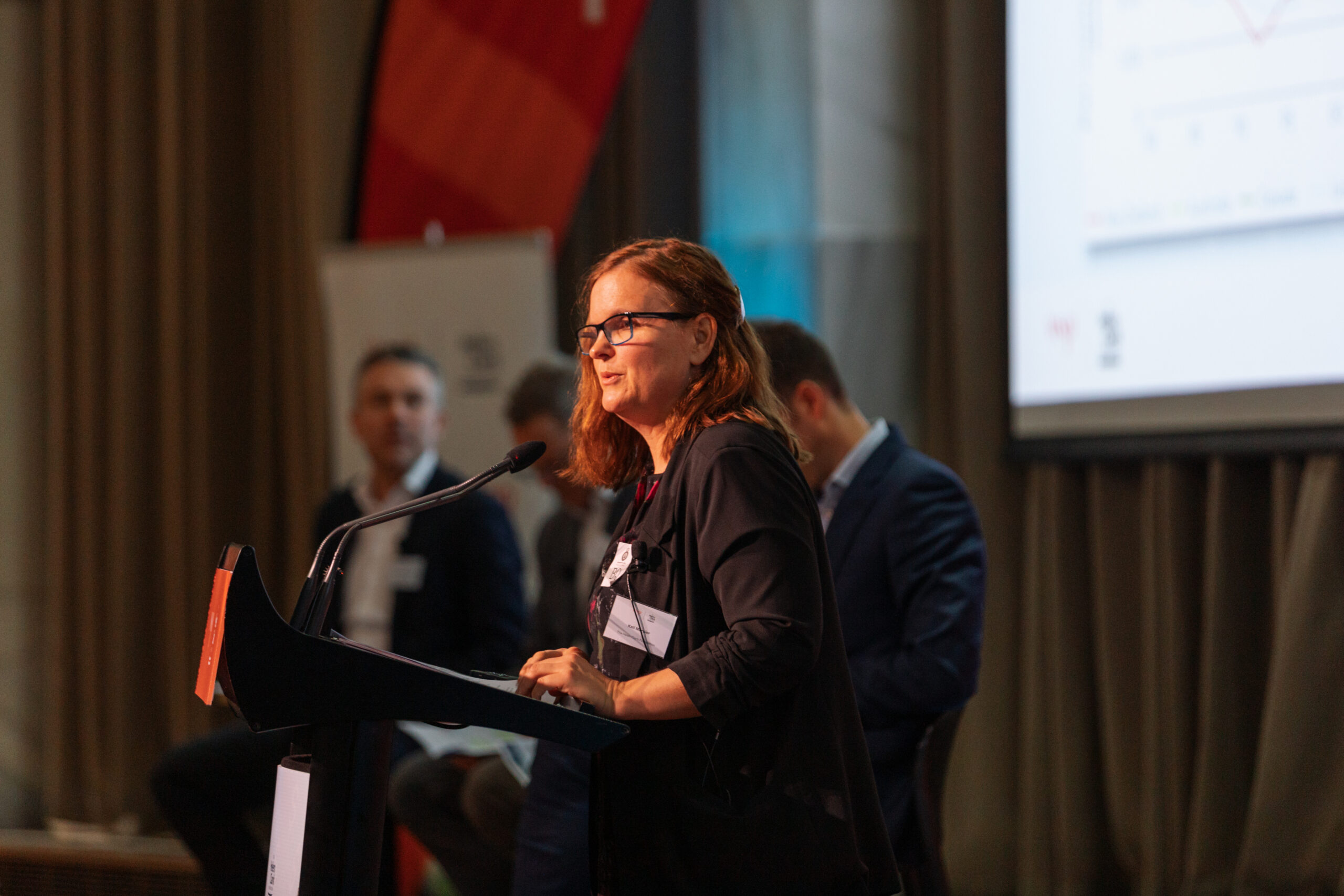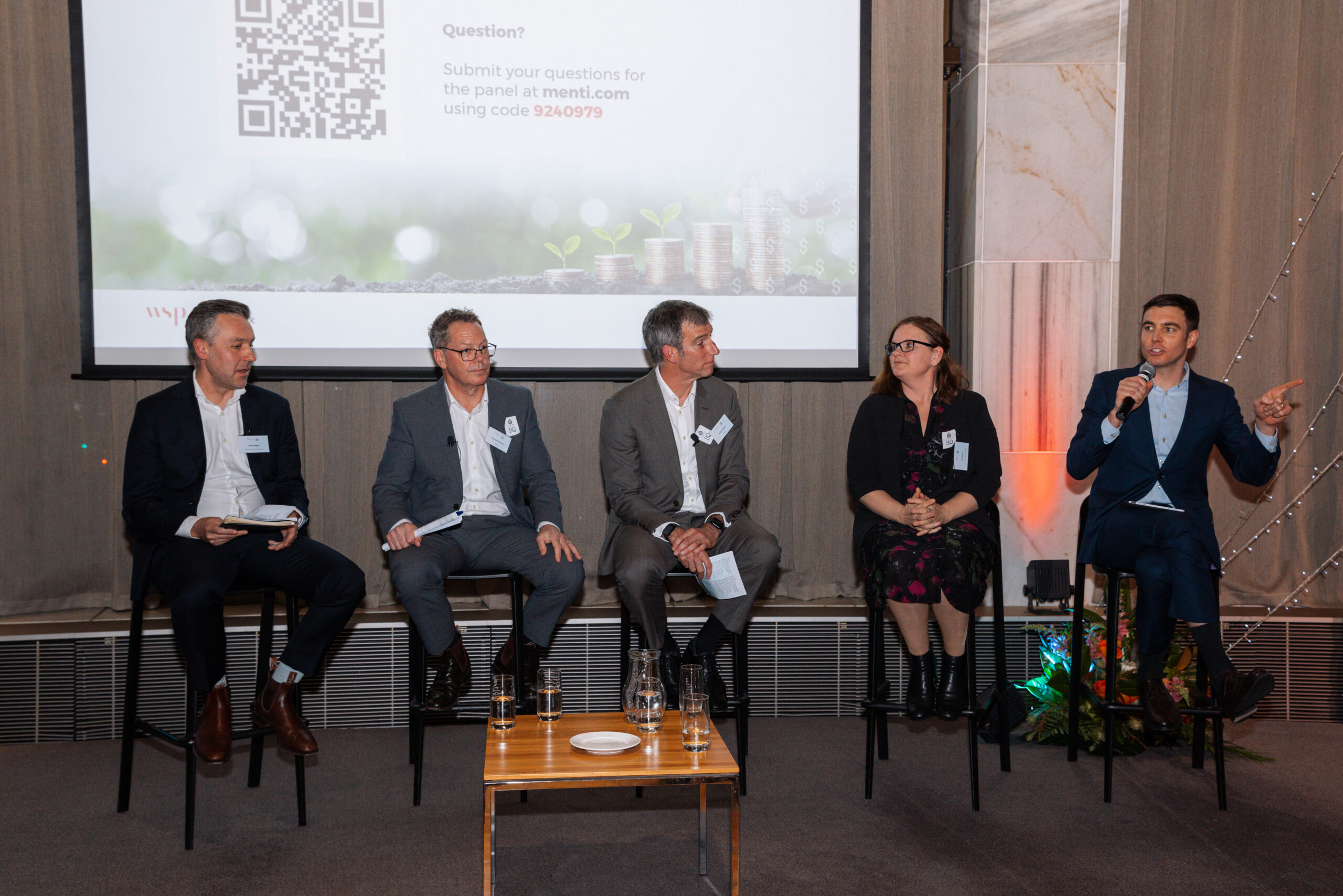There’s a growing consensus that Aotearoa New Zealand faces a huge infrastructure debt. But who is going to pay for it, and how? This was the question at the heart of the event held at Parliament on the 26th June, where 150 people gathered for the public launch of the Helen Clark Foundation and WSP’s latest research report, Bridging the Infrastructure Gap.
 Attended by parliamentarians and representatives from central government, local government, private sector business, academia and industry, the event highlighted the need for cross-party consensus on infrastructure.
Attended by parliamentarians and representatives from central government, local government, private sector business, academia and industry, the event highlighted the need for cross-party consensus on infrastructure.
TVNZ journalist and MC for the night Jack Tame began by introducing the Rt Hon Helen Clark, who set the scene in terms of our underfunding and under-delivery on infrastructure. Following this, minister of infrastructure Hon Chris Bishop spoke, as well as Labour’s transport spokesperson Hon Tangi Utikere. Both signalled their willingness to work on a cross-party consensus to solve issues arising from our infrastructure debt.
Report author and WSP Fellow at the Helen Clark Foundation Kali Mercier then discussed key points from the report. Among these are that equity and efficiency must be key key considerations, and that the best way to make up the shortfall in infrastructure investment is likely to be via long term borrowing, with repayments funded by taxation
Kali was then joined by a panel including WSP director of strategic advisory Grant Hodges, NZTA national manager of commercial delivery Andrew Robertson, and Infrastructure Commission general manager of infrastructure delivery Andy Hagan. Together the panel considered the question of how we have arrived at the point of having an estimated $200 billion infrastructure deficit. The panel pointed to a major issue being lack of political consensus on growing infrastructure needs over time, combined with public pressure to keep taxes, rates and user charges low. Panellists suggested that a long term vision leading to a secure pipeline of infrastructure projects would give the certainty needed for private sector investment, would save significant sums for New Zealand, and would drive productivity gains.

The panel ended by taking questions from the audience. They considered tricky problems like managed retreat and climate change adaptation, suggesting that there is no easy answer but solutions include stronger and more consistent signals around the risks of climate change, and information for asset owners. Other questions included how to ensure better efficiency in infrastructure delivery, and better investment decisions. The panel considered these to be matters of careful planning, strong management and utilisation of assets, and again referred to the need for a cross-party consensus on a pipeline of infrastructure projects.
You can read the report Bridging the Infrastructure Gap here.